No Products in the Cart
In case you hadn’t realized, Hippie Pants is a vegan-friendly company! We never use animal-based materials like leather, wool, or silk in our clothing. There is a wealth of plant-based and synthetic fabrics to choose from so being cruelty-free no longer means sacrificing quality.
Many of the people we talk to are unaware of the plethora of options available to them, or even where well-known fabrics actually come from. So we’ve created a little guide to vegan fabrics, from plant-based to hybrid and synthetic.
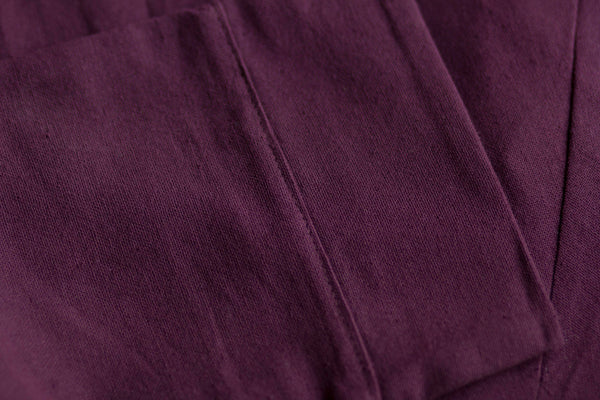
Cotton has been one of the most popular fabrics for centuries. It comes from the cotton plant, and its fibers are spun into thread or yarn. Cotton is beloved for its comfort and versatility. It’s incredibly breathable, meaning that it’s ideal for warmer temperatures because it doesn’t hold in perspiration. One downside to cotton is that it does wrinkle, however it’s very durable under high heat and is easily ironed or steamed.
Cotton is also biodegradable. It takes time, but unlike synthetic materials cotton eventually returns to the earth, making it one of the most sustainable fabrics available. Cotton is native to Thailand, and is used in many of our collections.
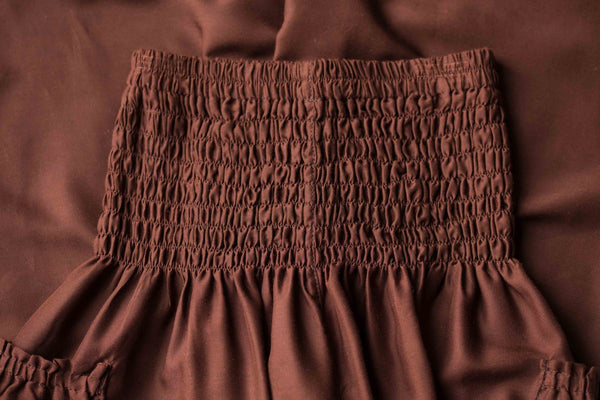
Rayon is a popular plant-based silk alternative because it mimics silk’s texture. It’s super versatile and can also be made to feel like wool, linen, or cotton. It’s very lightweight, making it a great summer fabric. The rayon used by Hippie Pants is derived from bamboo pulp which is then processed using chemicals to extract pure cellulose. It’s therefore considered a plant/synthetic hybrid material and is an extremely comfortable, breathable fabric. Rayon wrinkles easily, but can be ironed on low heat.
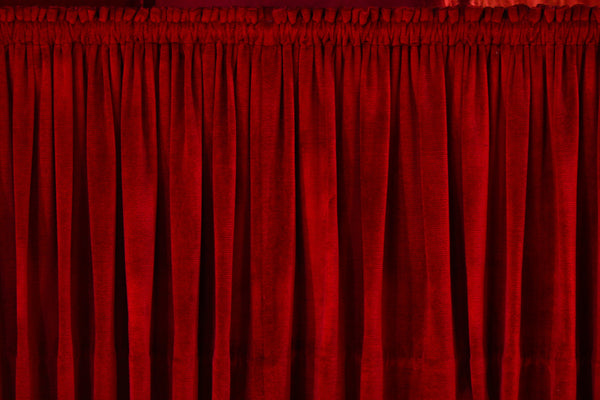
Velvet is best known for its incredibly soft texture. Although it is easily mass produced now, it was very difficult to make prior to industrial textile machines and because of that it is still a fabric associated with luxury. Traditionally, velvet was made with silk. Today, silk velvet is extremely expensive and and quite rare. Most velvet is made with a blend of silk and rayon, but is also readily available with fully synthetic, vegan fibers. Cotton can also be used to make velvet, although the quality is not as good. Velvet shouldn’t be folded - every wrinkle and crease will show! It’s heavy and doesn’t breathe well, so it’s best suited for winter time or cold climates.
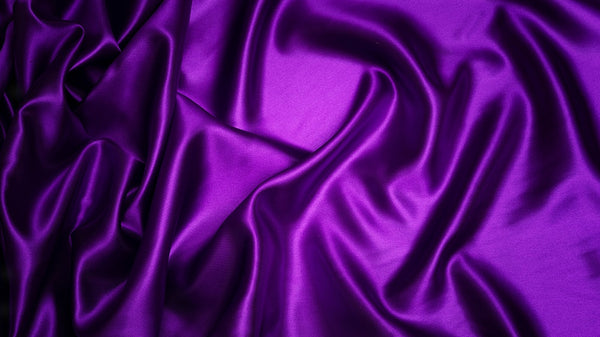
Satin’s glossy texture is decadent and beautiful, and it adds a touch of class to any item of clothing. It’s been around for a long time, and was originally constructed with silk, a non-vegan fabric derived from silk worms. The name “satin” is actually a weaving pattern, meaning that while it was originally made with silk it can be woven from other materials. Cheaper satin is most commonly made with polyester which is much less prone to wrinkling and damage than other types of silk. It can be ironed, but only on very low heat.
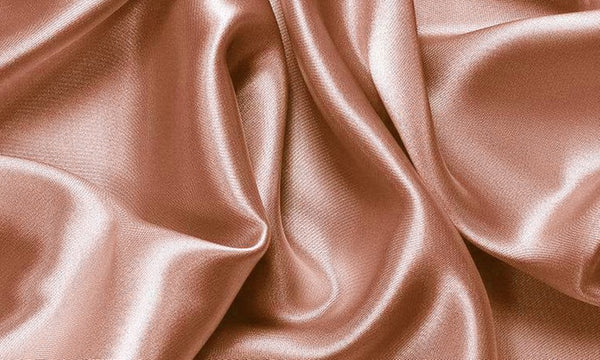
Polyester was invented in 1941. A combination of ethylene glycol and terephthalic acid, it’s basically a plastic. It’s extremely sturdy and doesn’t wrinkle but because it’s the fabric equivalent of plastic, it doesn’t breathe at all. It is also highly flammable and is best worn in cooler temperatures. There is a lot of concern about the environmental impact of polyester, because plastics do not compost. However, many polyester products are made with recycled plastic bottles, so knowing the source of your fabric can make a difference!
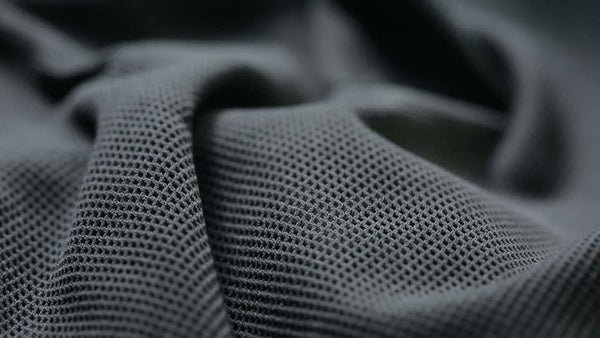
Nylon is a synthetic material that became popular as a new material for women’s tights at the end of the 1930’s. Shortly after, it became an essential material for the military during World War II due to its durability. Nylon is recyclable, but unfortunately many items made of nylon end up in landfills where they decay very slowly. Nylon doesn’t wrinkle, making it a popular fabric choice for activewear and travel clothing. It’s not very breathable, but it is perfect for swimwear because it dries quickly.

Lycra, also known as spandex, is most popular for athletic wear. It’s extremely stretchy, and it’s often added to other fabrics to make them more expandable. It doesn’t wrinkle. Similar to polyester it is derived from petroleum and a lot of energy is consumed producing it. There are currently several ongoing projects to start mass production of non-petroleum spandex. Spandex is extremely comfortable and used for products such as yoga pants. People love how forgiving the material is and how easy it is to bend and stretch.
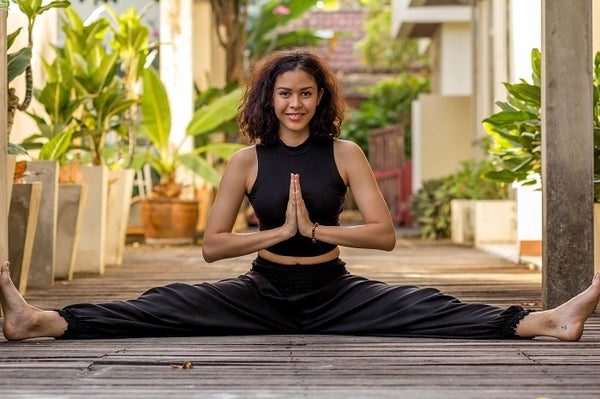
At Hippie Pants we make all of our vegan clothing using cotton and rayon. We love how versatile they are, in particular their blend of lightness and durability which makes them ideal for an active lifestyle. Additionally, we source our fibers exclusively from Thailand reducing the impact on the environment.
Knowing about the fabric you’re wearing helps you make informed decisions. When you’re shopping online it can be difficult to get a good idea of how something is going to fit you. Beyond knowing your measurements, understanding how a fabric will lay on your body and whether it’s better for cold or hot weather can seriously improve the odds that you’ll be happy with your online order!
Like
Thank you so much for your kind words! Luba, I’m thrilled you love the Crystal Pants. Thanks for your feedback. John – agreed that we should always ensure the materials we are using are sustainable. It’s very important!
For the first time in my life (and I am 65 soon) I enjoy wearing pants… Your
crystal pants are amazingly beautiful, cool and so so comfortable… The only thing I would like to change is to ask you if possible not to fix the gum to the bottom of the pants’s leg. I am thinking of another order. Thank you for the best product and fast delivery!